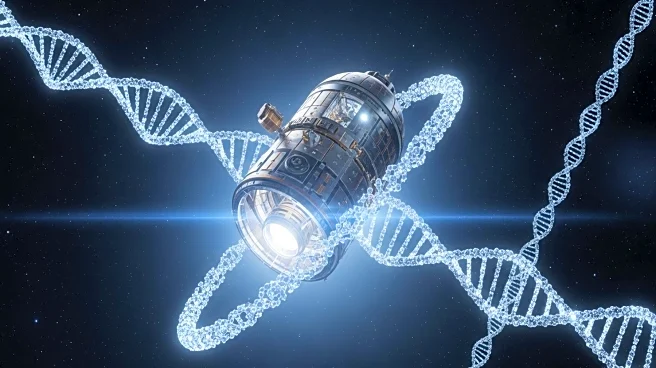What is the story about?
What's Happening?
NASA's GeneLab project has established Analysis Working Groups (AWGs) to maximize the generation of new knowledge from spaceflight-relevant omics datasets within the GeneLab Data System (GLDS). These groups focus on four model organism areas: plants, multi-omics/systems biology, microbes, and animals. In 2018, the AWGs achieved significant milestones, including the development of analysis pipelines and the initiation of several manuscripts using GeneLab data. The AWGs aim to optimize the processing of raw omics data and improve the effectiveness of the GLDS through extensive analytics. The groups have also engaged in workshops and teleconferences to establish analytical processes and generate higher-order data from the GLDS.
Why It's Important?
The work of NASA's GeneLab AWGs is crucial for advancing spaceflight research by providing a deeper understanding of biological systems' reactions to spaceflight. This research has the potential to enhance the safety and effectiveness of long-term space missions by uncovering the molecular mechanisms of adaptation to space environments. The AWGs' efforts to democratize space life science research by making processed omics data publicly available can lead to broader scientific discoveries and collaborations. This initiative supports NASA's mission to explore space while ensuring the health and safety of astronauts.
What's Next?
The AWGs plan to continue developing and refining their analysis pipelines and to publish several manuscripts in 2019. They aim to enhance the visibility and utility of GeneLab, fostering new collaborations and advancing knowledge in spaceflight and ground-based research. The groups are also recruiting new members, including investigators, bioinformaticians, and students, to participate in their ongoing research efforts. This expansion is expected to bring fresh perspectives and expertise to the project, furthering its goals of understanding biological responses to spaceflight.
Beyond the Headlines
The establishment of the AWGs represents a significant step towards integrating omics data into spaceflight research, which could have long-term implications for both space exploration and terrestrial applications. By understanding how biological systems adapt to space, researchers can develop strategies to mitigate the adverse effects of space travel on human health. Additionally, the insights gained from this research could inform agricultural practices and medical treatments on Earth, demonstrating the broader impact of space research on society.
















